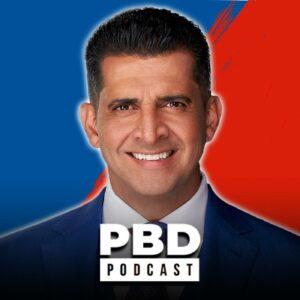
In this episode of the “Financial Feminist” podcast, host Tori discusses the concept of work as identity and the consequences of over-identifying with our jobs. She is joined by guest Simone Stolzoff, a journalist who explores the cultural and societal implications of work. Together, they delve into the reasons behind this phenomenon, its impact on mental health, and strategies for finding fulfillment outside of work.
Work has become a status symbol and badge of honor in society, leading many individuals to over-identify with their jobs. This narrow focus on work can make it difficult to find personal fulfillment and navigate life when work becomes the sole source of identity. It is important to find joy and meaning outside of work to maintain a balanced and fulfilled life.
Americans tend to blame themselves for unemployment, influenced by the country’s individualistic culture. The American dream is deeply rooted in the Protestant work ethic, where one’s value is determined by their output and work. This cultural mindset leads to a significant portion of workers deriving their sense of identity from their job, which can have both positive and negative consequences on mental health.
Over-identifying with work can have detrimental effects on mental health and overall well-being. It can lead to burnout, disappointment, and neglect of other important aspects of life. Recognizing the consequences and reclaiming ourselves outside of work is crucial for maintaining a healthy work-life balance and overall happiness.
Consciously separating work from personal identity requires ongoing effort and self-reflection. Developing a healthy relationship with work involves knowing who we are outside of our job titles and investing in other aspects of our lives. Creating opportunities where work is not the sole focus allows for the development of different identities and promotes resilience and creativity.
The concept of the Good Enough Job emphasizes sufficiency over perfection in the working world. While it is important to find a job that aligns with one’s passion, relying solely on work for identity and meaning can be risky. Investing in different sides of who we are, outside of work, leads to resilience and creativity, making us more fulfilled individuals.
The future of work is expected to involve more autonomy and trust placed in the hands of employees and individuals. Separating career identity from personal identity requires small steps, such as finding pockets of time to invest in other identities and interests. Our identities, like plants, require our time and attention to flourish. By diversifying our identities, we become more resilient and adaptable in the face of job loss or adversity.
Over-identifying with work can have significant consequences on our mental health and overall well-being. It is crucial to find joy and fulfillment outside of work, invest in other aspects of our lives, and separate our career identity from our personal identity. Recognizing the importance of a balanced and multifaceted life allows us to thrive both professionally and personally. The future of work lies in embracing autonomy and trust, and prioritizing our well-being and holistic growth.